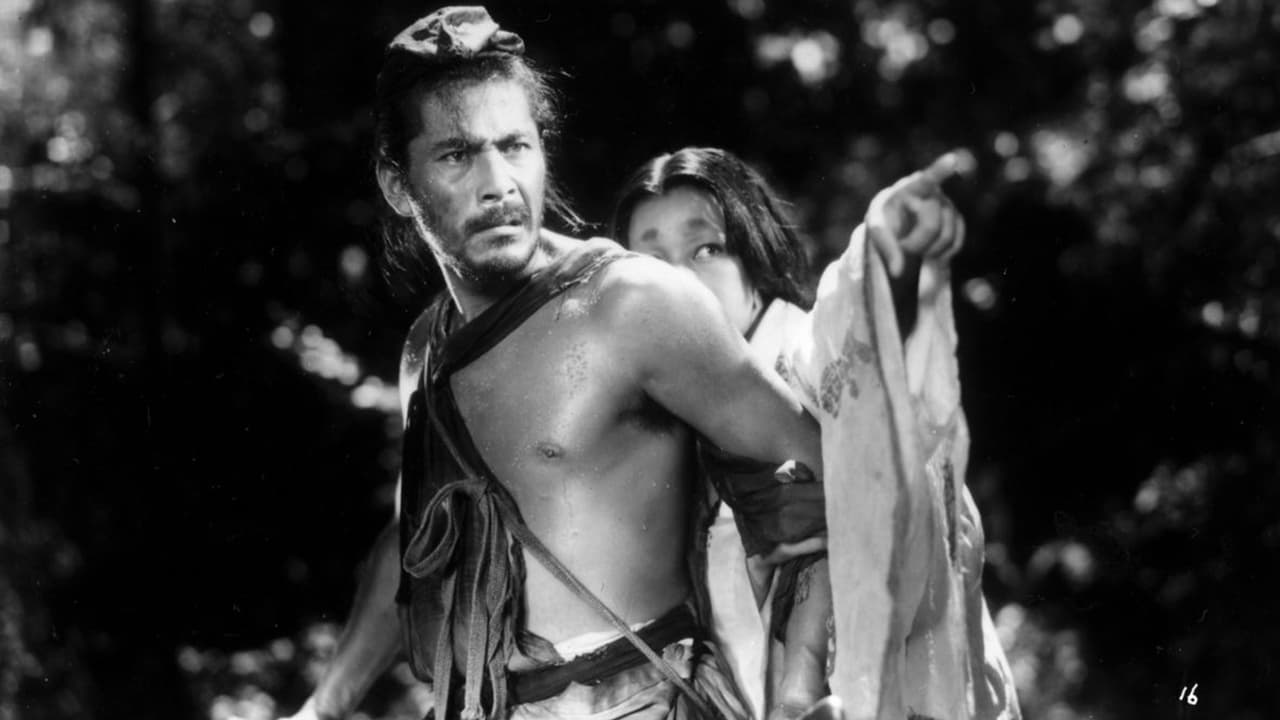

What makes it different from others?
... View MoreI cannot think of one single thing that I would change about this film. The acting is incomparable, the directing deft, and the writing poignantly brilliant.
... View MoreIt was OK. I don't see why everyone loves it so much. It wasn't very smart or deep or well-directed.
... View MoreThis movie feels like it was made purely to piss off people who want good shows
... View MoreRashomon is one of the most well known movies of Japanese cinema, and for good reason. The unconventional yet exceptional cinematography conveys the simple tale in a very effective way. But for me the most important part is what that tale can teach us.One can think about what Rashomon's message really is for a long time, and keep coming up with new ideas, and most likely one of them will resonate with some people more than it will with others. The lessons i feel Rashomon strongly emphasizes are the fact that each person thinks of their profit, and will do many things to protect what they value the most and/or gain something more, and the fact that truth told by a single person is never the actual truth.That is achieved through the characters retelling what happened between the three of them in the forest, each spinning a new tale that makes them look as the most noble, strong, or innocent, trying to earn sympathy or not lose the pride they have, as previously stated, valuing their own gain more than telling the truth. Through the same points of view, it becomes clear that no single narrator is reliable, because even if you are willing to tell the truth, small exaggerations, omissions, lies, will most likely show up, especially if you were involved in the story you are retelling.A stunning movie that everyone should watch at least once in their lifetime.
... View MoreAn account of rape told to the High Court from three different perspectives: the raper, the woman, and her prince who failed to protect her
... View MoreThis movie trying to show truth is relative. There is an incident occurred and there were some witnesses of that incident, each narrate the story from their point of views. The outcome the story is identical however each narrator saw it differently.One of the interesting part of the movie there is no interrogator shows in the movie. The questions are repeated by the witnesses and answered accordingly to keep the story intact from the interrogator's characteristic.I categorized this movie under philosophical genera. It shed light on human being nature and how they think and interpret their surround. The human nature is to look for truth and yet they alter the fact to be able to leave with it in a way or another.
... View MoreI'm actually mad with this movie. It's such a great effort in almost everything for such a poor execution in two major areas; the acting and the script. The former is so absurdly over-dramatic that it seems like a parody of itself, has comedy-like reactions without a link between them to feel organic, it's just laughable b-movie type ridiculousness. The latter just doesn't know how to handle the plot, it's a lowsy implementation of everything good with the story.The direction, of course, is magnificent. There's one point when two characters with opposite moral highgrounds naturally set upon a third character to represent his own disbelief with the situation he's in. It's beautiful and it's vivid.
... View More